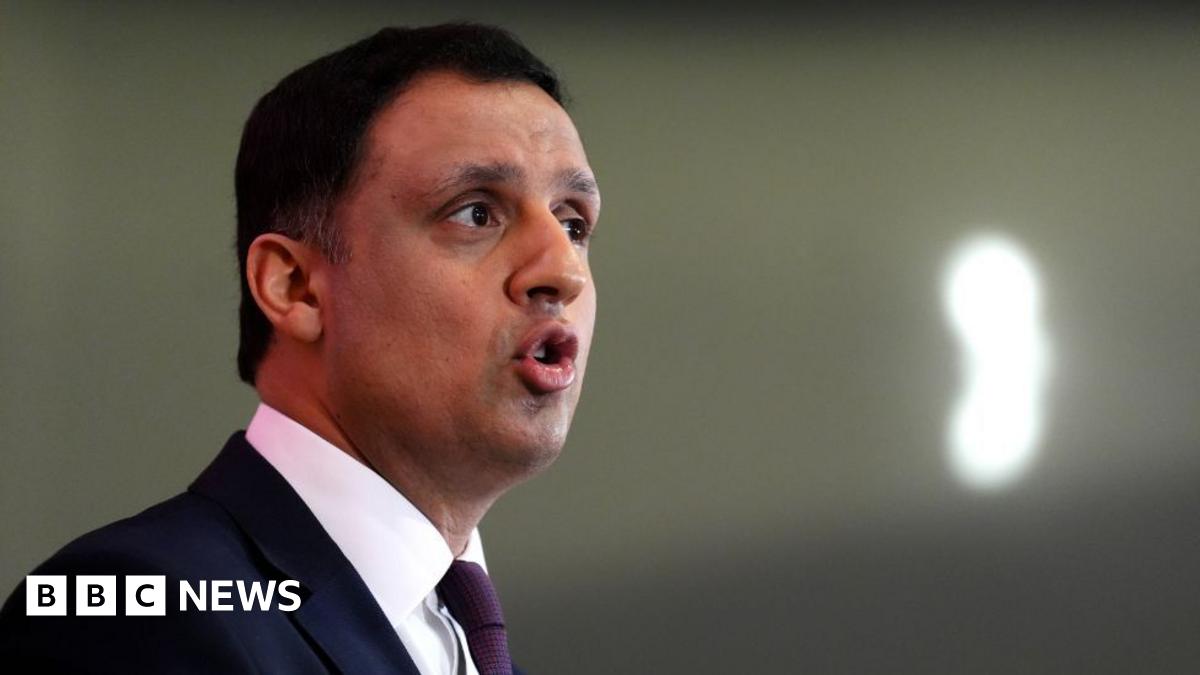Bussiness
Sarwar pledges to reduce quangos for businesses in bid for 2026 Holyrood elections

He criticised what he described as a “bureaucratic monster” under the SNP, with 131 “quangos” now costing the taxpayer £6.6 billion every year.
If he becomes First Minister following the Holyrood elections in 2026, Mr Sarwar said he wants to see a “fundamental reorganisation” of organisations financed or controlled by government bodies across Scotland.
Quangos, quasi-autonomous non-governmental organisations, in Scotland include Scottish Enterprise and other regional enterprise agencies such as South of Scotland Enterprise.
In August 2023, data seen by The Herald showed staff salaries within all forms of government and quangos in Scotland has risen by over 60% from an estimated £1.010bn in 2016 to £1.623bn in 2023.
READ MORE:
When are we going to get to grips with undemocratic quangos?
‘Scottish Labour would end waste and cover up culture’
Asked by The Herald today about what specific quangos he would want to reform if he came into power, Mr Sarwar said: “We are looking at quangos across the economic directorate. There are a number of quangos around those that are involved in shaping and supporting our economy and businesses.
“I think the massive frustration many businesses will have is there are lots of organisations, many places to go but little support that comes from them. We’ve got to change that approach. That’s one example.”
In Mr Sarwar’s party’s manifesto last year, it states: “Scottish Labour has been clear that we need to reform Scotland’s enterprise agency landscape so that it is better aligned to deliver innovation, upskill workers, and attract investment to support the sector.”
Following Mr Sarwar’s comments, the Federation of Small Business Scotland told The Herald it is potentially time to reconsider “workforce planning” across the public sector to ensure effective use of such bodies.
Stacey Dingwall, FSB Scotland’s Head of Policy and External Affairs, said: “The headline figures suggest the number of civil servants working across all forms of government and quangos in Scotland has grown significantly over the years, so it’s perhaps time to look again at workforce planning across the public sector, to make sure we are getting the most bang for our tax payers’ buck.
“It is vital that any public sector reform focuses on maintaining, and if possible enhancing, the services that really do make a difference. High quality business support services play a vital role in supporting economic growth. Small businesses often rely on specialist help and guidance to survive teething problems before going on to grow and employ more staff.”
According to a poll of FSB members in 2023, almost half (47.3%) said there was not enough support for anyone starting a business in Scotland.
On reform of public sector bodies, Mr Sarwar also said there was “too much bureaucracy” and “too many layers of management” within Scotland’s health and social care system so he would like to “reduce that also”.
The Scottish Labour leader also said we needed to see more shared services through “changing the approach” for local authorities by “pushing power out of Holyrood and into the cities of Scotland.”
John Swinney said his government will focus on improving the value for money within public finances as he told journalists today he has “never been a great fan of expanding the number of public bodies.”
The First Minister added: “I reduced a substantial number of them when I was finance secretary before. Over time, lots of reasons come along for different bodies to merge. Indeed, Parliament votes for it half the time, to put these organizations in place. And some of the self same people who are demanding that we reduce the quangos are the ones that have been demanding the quangos. We should be inviting more consistency from some of the people making their comments. ”
Insisting Scotland needed a “new direction” during his New Year’s Speech at Glasgow University today, Mr Sarwar said Scotland cannot end poverty by simply paying higher benefits.
He told supporters and journalists that growing the economy whilst creating more well-paid jobs was crucial to lift Scots out of poverty.
However, the Scottish Labour leader also distanced himself from his previous calls for the Scottish Child Payment (SCP) to be increased to £40 per week.
Speaking to journalists afterwards, Mr Sarwar would not say whether it should be increased above its current level of £27.15 per week.










